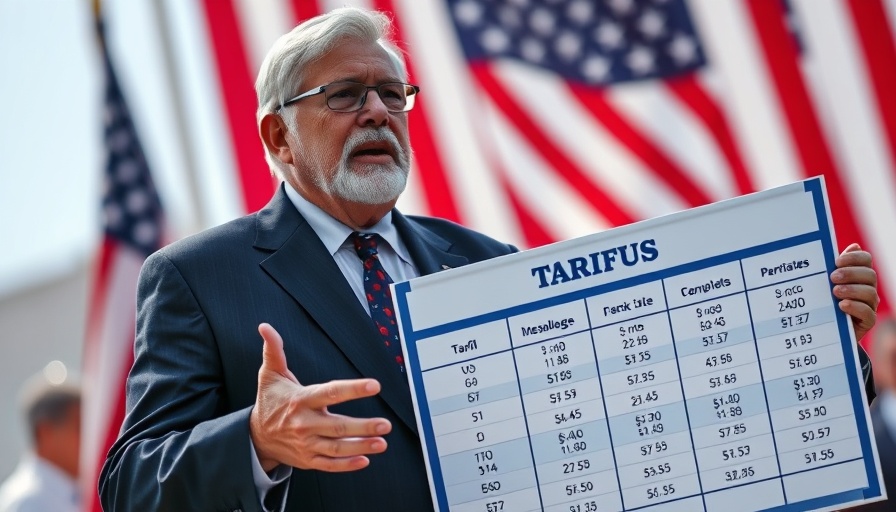
The Unexpected Impact of Trump's Tariff Announcement
Wall Street was taken aback by President Trump's recent declaration of 'Liberation Day,' where he surprised the markets with a set of new tariffs. Analysts and investors alike interpreted this announcement as a significant escalatory move in the ongoing trade tensions, worsening the already jittery state of global markets.
Understanding the Market Reaction
Following Trump's announcement, stocks experienced a dramatic downturn. Major indices such as the S&P 500 and the Nasdaq Composite fell sharply, echoing concerns over the potential ripple effects on international trade and domestic industry. Experts noted that this move could add inflationary pressures at a time when consumer prices are already rising, further complicating the economic landscape.
The Broader Economic Context
The implications of this tariff introduction are multifaceted. Historically, tariffs have often been used as tools for negotiation; however, the current climate suggests a precarious balance. With the US economy still recovering from the pandemic and ongoing supply chain disruptions, any added strain can be detrimental.
Future Predictions: What Does this Mean for Investors?
The latest tariffs raise valid concerns about the sustainability of growth in the US economy. Analysts predict that these tariffs may not only affect stock prices but could also prompt companies to revisit their investment strategies. Industries that rely heavily on imports may face increased costs, leading to higher consumer prices and potential declines in consumer spending.
A Counterpoint: Potential Advantages of Tariffs
Despite the negative market reaction, there are voices suggesting that tariffs could be beneficial in the long run. Some argue that they protect domestic industries from foreign competition, fostering job growth and innovation. These perspectives prompt a deeper discussion on the balance between immediate economic pain and longer-term economic health.
Global Perspectives and Repercussions
On a global scale, other nations are observing the United States’ strategic shifts with caution. Tariffs can provoke retaliatory measures, leading to a tit-for-tat escalation that can strain relationships and hinder trade agreements. Countries such as China and the European Union are likely contemplating their responses, which could lead to wider economic ramifications.
Aligning Economic Strategies with Current Events
As economic instability looms, it becomes crucial for investors to stay informed and adjust their strategies accordingly. The current political climate in the US suggests volatility will continue to shape financial markets. Interested parties must be prepared for fluctuating market conditions and potential changes in consumer behavior.
Key Takeaways: What Should Investors Consider?
Investors should remain vigilant in monitoring trade policies and market trends. A savvy approach includes diversifying portfolios to mitigate risks associated with heavy reliance on specific industries that could be adversely affected by tariffs. Furthermore, staying updated with economic reports and forecasts can provide critical insights into navigating this tumultuous phase.
In conclusion, Trump's 'Liberation Day' has far-reaching implications for the stock market and the broader economy. It serves as a reminder of the interconnected nature of global trade and the impact of decision-making at the highest levels. Understanding these dynamics is vital for making informed investment decisions.
 Add Row
Add Row 
 Add
Add 


 Add Row
Add Row 
 Add
Add
Write A Comment